41 have author last names that start with O have author last names that start with O
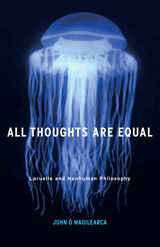
All Thoughts Are Equal is both an introduction to the work of French philosopher François Laruelle and an exercise in nonhuman thinking. For Laruelle, standard forms of philosophy continue to dominate our models of what counts as exemplary thought and knowledge. By contrast, what Laruelle calls his “non-standard” approach attempts to bring democracy into thought, because all forms of thinking—including the nonhuman—are equal.
John Ó Maoilearca examines how philosophy might appear when viewed with non-philosophical and nonhuman eyes. He does so by refusing to explain Laruelle through orthodox philosophy, opting instead to follow the structure of a film (Lars von Trier’s documentary The Five Obstructions) as an example of the non-standard method. Von Trier’s film is a meditation on the creative limits set by film, both technologically and aesthetically, and how these limits can push our experience of film—and of ourselves—beyond what is normally deemed “the perfect human.”
All Thoughts Are Equal adopts film’s constraints in its own experiment by showing how Laruelle’s radically new style of philosophy is best presented through our most nonhuman form of thought—that found in cinema.
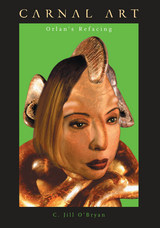
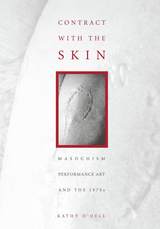

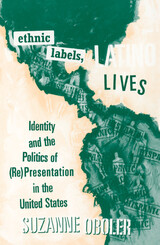
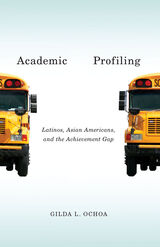
Today the achievement gap is hotly debated among pundits, politicians, and educators. In particular this conversation often focuses on the two fastest-growing demographic groups in the United States: Asian Americans and Latinos. In Academic Profiling, Gilda L. Ochoa addresses this so-called gap by going directly to the source. At one California public high school where the controversy is lived every day, Ochoa turns to the students, teachers, and parents to learn about the very real disparities—in opportunity, status, treatment, and assumptions—that lead to more than just gaps in achievement.
In candid and at times heart-wrenching detail, the students tell stories of encouragement and neglect on their paths to graduation. Separated by unequal middle schools and curriculum tracking, they are divided by race, class, and gender. While those channeled into an International Baccalaureate Program boast about Socratic classes and stress-release sessions, students left out of such programs commonly describe uninspired teaching and inaccessible counseling. Students unequally labeled encounter differential policing and assumptions based on their abilities—disparities compounded by the growth in the private tutoring industry that favors the already economically privileged.
Despite the entrenched inequality in today’s schools, Academic Profiling finds hope in the many ways students and teachers are affirming identities, creating alternative spaces, and fostering critical consciousness. When Ochoa shares the results of her research with the high school, we see the new possibilities—and limits—of change.

Investigating the work of Trinh T. Minh-ha, Judy Malloy, Shelley Jackson, Stephanie Strickland, and M. D. Coverly, Odin demonstrates how these writers apply hypertextual strategies to subversively convey difference. Through her readings of various transformative hypertext narratives by women writers/artists, she pursues the question of what constitutes empowering descriptions of the world in a technology-mediated culture where the dominant discourse is turning everything into the same.
Using feminist as well as postcolonial perspectives, she explores the embodied state of the human as reflected in critically aware contemporary narratives and examines how these works consider what it means to be human in the twenty-first century.
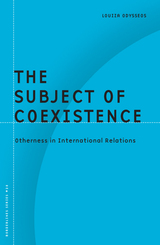
In this pioneering book, Louiza Odysseos argues that debates about ethnic conflict, human rights, and the viability of multicultural communities all revolve around the question of coexistence. Yet, issues of coexistence have not been adequately addressed by international relations. Instead of being regarded as a question, “coexistence” is a term whose meaning is considered self-evident.
The Subject of Coexistence traces the institutional neglect of coexistence to the ontological commitments of international relations as a modern social science predicated on conceptions of modern subjectivity. This reliance leads to the assumption that coexistence means little more than the social and political copresence of individuals, a premise that occludes the roles of otherness in the constitution of the self. Countering this reliance necessitates the examination of how existence itself is coexistential from the start.
Odysseos opens up the possibility of a coexistential ontology, drawing on Martin Heidegger and his interlocutors, in which selfhood can be rethought beyond subjectivism, reinstating coexistence as a question for global politics—away from the restrictive discursive parameters of the modern subject.
Louiza Odysseos is senior lecturer in international relations at the University of Sussex.

Today, the many visions of the Everglades—protectionist, ecological, commercial, historical—have become a tangled web of contradictory practices and politics for conservation and for development. Yet within this entanglement, the place of people remains highly ambivalent. It is the role of people in the Everglades that interests Ogden, as she seeks to reclaim the landscape’s long history as a place of human activity and, in doing so, discover what it means to be human through changing relations with other animals and plant life.
Ogden tells this story through the lives of poor rural whites, gladesmen, epitomized in tales of the Everglades’ most famous outlaws, the Ashley Gang. With such legends and lore on one side, and outsized efforts at drainage and development on the other, Swamplife strikes a rare balance, offering a unique insight into the hidden life of the Everglades—and into how an appreciation of oppositional culture and social class operates in our understanding of wilderness in the United States.
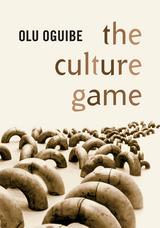

A classic of Japanese speculative fiction that blurs the line between consumption and creation when a cyborg assumes the form and spirit of a murdered child
Until he escaped, he had been called “Sample B #3,” but he had never liked this name. That would surprise them—that he could feel one way or another about it. He was designed to reshape himself based on whatever life forms he ingested; he was not made to think, and certainly not to assume the shape of a repair technician whose cells he had sampled and then simply walk out of the secure compound.
Artificial Intelligence is all too real in this classic of Japanese science fiction by Mariko Ōhara. Jonah, a child murdered by her mother, has become the spirit of an AI-controlled house where the rogue cyborg once known as Sample B #3 takes refuge and, making a meal of the dead girl buried under the house, takes Jonah’s form. On faraway Planet Caritas, an outpost of human civilization, the female AI system that governs society has become insane. Meanwhile, the threat of the Adiaptron Empire, the machine race that #3 was built to fight, remains.
With the familiar strangeness of a fairy tale, Ōhara’s novel traverses the mysterious distance between body and mind, between the mechanics of life and the ghost in the machine, between the infinitesimal and infinity. The child as mother, the mother as monster, the monster as hero: this shape-shifting story of nourishment, nurture, and parturition is a rare feminist work of speculative fiction and received the prestigious Seiun (Nebula) Award in 1991. Hybrid Child is the first English translation of a major work of science fiction by a female Japanese author.

For Ohi, there are many elements in the style that make James’s writing queer. But if there is a thematic marker, Ohi shows through his careful engagements with these texts, it is belatedness. The recurrent concern with belatedness, Ohi explains, should be understood not psychologically but stylistically, not as confessing the sad predicament of being out of sync with one’s life but as revealing the consequences of style’s refashioning of experience. Belatedness marks life’s encounter with style, and it describes an experience not of deprivation but of the rich potentiality of the literary work that James calls “freedom.” In Ohi’s reading, belatedness is the indicator not of sublimation or repression, nor of authorial self-sacrifice, but of the potentiality of the literary—and hence of the queerness of style.
Presenting original readings of a series of late Jamesian texts, the book also represents an exciting possibility for queer theory and literary studies in the future: a renewed attention to literary form and a new sounding—energized by literary questions of style and form—of the theoretical implications of queerness.

Delicious authentic recipes revised for the modern kitchen
Desserts have always been a fixture at the American table, inspiring pleasant lingering over a cup of coffee and just one more scrumptious bite. From colonial specialties to old-time country favorites, this book presents a complete collection of more than two hundred mouthwatering delights.
Cooking expert Beatrice Ojakangas has researched original sources from across the country to recapture the delicious tastes of Lemon Icebox Cake, Applesauce Crisp, and Rhubarb-Strawberry Pie. Along with each recipe, Ojakangas shares fascinating stories and little-known facts about the history of the dessert. The recipes have been tested and updated for easy preparation with today’s ingredients and techniques, and this book also offers practical advice on buying fresh fruits and cooking pudding. From Yankee Apple Snow to Creole Sweet Potato Pie, Great Old-Fashioned American Desserts provides an enticing tour of the desserts of America’s rich food heritage.

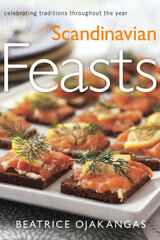
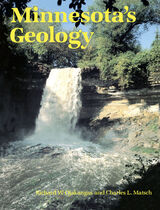
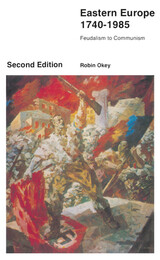

Coopted by military operations, humanitarianism has never been neutral. Rather than welcoming refugees, host countries assess the relative risks of taking them in versus turning them away, using a risk-benefit analysis that often reduces refugees to collateral damage in proxy wars fought in the war on terrorism. Carceral Humanitarianism testifies that humanitarian aid and human rights discourse are always political and partisan.
Forerunners is a thought-in-process series of breakthrough digital works. Written between fresh ideas and finished books, Forerunners draws on scholarly work initiated in notable blogs, social media, conference plenaries, journal articles, and the synergy of academic exchange. This is gray literature publishing: where intense thinking, change, and speculation take place in scholarship.
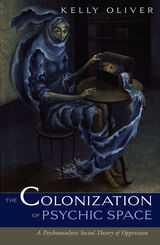
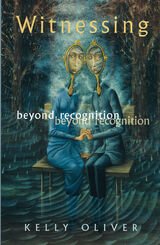


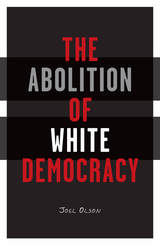

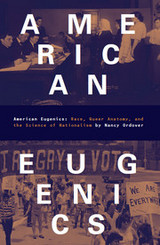

Narrative Experiments was first published in 1989. Minnesota Archive Editions uses digital technology to make long-unavailable books once again accessible, and are published unaltered from the original University of Minnesota Press editions.
In Narrative Experiments, Gayle Ormiston and Ralph Sassower bring a refreshing perspective to the domains of inquiry we call "science" and "technology," asserting that traditional definitions (like classical idealism and materialism) fail to suggest the rich and complex cultural/linguistic interplay occurring between them. This context is not merely a background, nor is Ormiston and Sassower's just one more interdisciplinary approach to the subject. Instead, their book argues, science, technology, and the humanities developed in concert with one another, and their reciprocity obliterates all traditional disciplinary boundaries.
Ormiston and Sassower build their case by devoting a chapter to each of the four themes emerging from the etymological introduction. First, they look at the role fiction and other literary modes play in developing our attitudes toward science and technology -- how the visions of Bacon, Hobbes, Galileo, Rousseau, Mary Shelley, and Orwell evoke both anxiety and hope. Next, they examine a series of eighteenth-century "fictions" -- the Enlightenment texts of Kant, Rousseau, and Hume -- and the elevated (but ambiguous) status science and technology associated with them. The last two chapters evaluate modes of discursive authority and its dissemination -- classical and modern extralinguistic approaches; the contemporary-linguistic view espoused by Rorty, Quine, and others; and their own avowedly experimental journey through the labyrinths of cultural and linguistic usage.
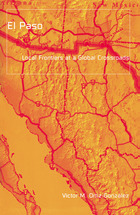

In this wide-ranging work Ortíz argues for the authentically diasporic quality of postrevolutionary, off-island Cuban experience. Highlighting various forms of cultural expression, Cultural Erotics in Cuban America traces underrepresented communities’ responses to the threat of cultural disappearance in an overwhelming and hegemonic U.S. culture. Ortíz shows how the work of Cuban-American writers and artists challenges the heteronormativity of both home and host culture. Focusing on artists who have had an ambivalent, indirect, or nonexistent connection to Miami, he presents close readings of such novelists as Reinaldo Arenas, Roberto G. Fernández, Achy Obejas, and Cristina García, the playwright Eduardo Machado, the poet Rafael Campo, and musical performers Albita Rodríguez and Celia Cruz.
Ortíz charts the legacies of sexism and homophobia in patriarchal Cuban culture, as well as their influence on Cuban-revolutionary and Cuban-exile ideologies. Moving beyond the outdated cultural terms of the Cold War, he looks forward to envision queer futures for Cuban-American culture free from the ties to restrictive—indeed, oppressive—constructions of nation, place, language, and desire.
Ricardo L. Ortíz is associate professor of English at Georgetown University.


The Day of the Cattleman was first published in 1929. Minnesota Archive Editions uses digital technology to make long-unavailable books once again accessible, and are published unaltered from the original University of Minnesota Press editions.
The legend of the Wild West, as celebrated in thousands upon thousands of western stories and movies, radio and television programs, has a firm grip on the imaginations of both young and old, not only in America but in many other lands. But, popular though such versions are, they do not tell how the west was really won. Professor Osgood's account sets the record straight for those who want authentic history rather than melodramatic fiction.
"The range cattleman," Professor Osgood writes, "has more solid achievements to his credit than the creation of a legend. He was the first to utilize the semi-arid plains. Using the most available natural resources, the native grasses, as a basis, he built up a great and lucrative enterprise, attracted eastern and foreign capital to aid him in the development of a new economic area, stimulated railroad building in order that the product of the ranges might get to an eastern market, and laid the economic foundation of more than one western commonwealth."
Professor Osgood traces the rise and fall of the range cattle industry, particularly in Montana and Wyoming, from 1845 to the turn of the century. He gives a detailed account of the activities of the stock growers' associations and of the cattlemen's relations with the railroads and with the Federal government.
The book has won critical acclaim both in this country and abroad. The Saturday Review has described it as an "honest, scientific, and thorough examination" of a "semi-epic phase of Western life, now almost completely dead." In England, the Times Literary Supplement called it "the only substantial record of this particular chapter in the history of the West."
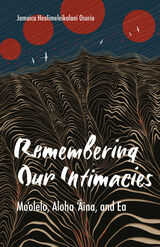
Recovering Kānaka Maoli (Native Hawaiian) relationality and belonging in the land, memory, and body of Native Hawai’i
Hawaiian “aloha ʻāina” is often described in Western political terms—nationalism, nationhood, even patriotism. In Remembering Our Intimacies, Jamaica Heolimeleikalani Osorio centers in on the personal and embodied articulations of aloha ʻāina to detangle it from the effects of colonialism and occupation. Working at the intersections of Hawaiian knowledge, Indigenous queer theory, and Indigenous feminisms, Remembering Our Intimacies seeks to recuperate Native Hawaiian concepts and ethics around relationality, desire, and belonging firmly grounded in the land, memory, and the body of Native Hawai’i.
Remembering Our Intimacies argues for the methodology of (re)membering Indigenous forms of intimacies. It does so through the metaphor of a ‘upena—a net of intimacies that incorporates the variety of relationships that exist for Kānaka Maoli. It uses a close reading of the moʻolelo (history and literature) of Hiʻiakaikapoliopele to provide context and interpretation of Hawaiian intimacy and desire by describing its significance in Kānaka Maoli epistemology and why this matters profoundly for Hawaiian (and other Indigenous) futures.
Offering a new approach to understanding one of Native Hawaiians’ most significant values, Remembering Our Intimacies reveals the relationships between the policing of Indigenous bodies, intimacies, and desires; the disembodiment of Indigenous modes of governance; and the ongoing and ensuing displacement of Indigenous people.

A picture-book journey through the Boundary Waters Canoe Area Wilderness in winter, snowshoeing the frozen lakes and silent forest with family, encountering the wonders of northern wildlife in the cold season
In winter the Boundary Waters, way up north in Minnesota, is not the same place you canoed last summer—but still it beckons and welcomes you. Grab a pack, strap on snowshoes, make a path (Oh! they take some getting used to!), and venture out across the frozen lakes and through the snowy woods. The vast wintery world here is so still and quiet, you might think you’re all alone—but no! Who made these tracks? A deer? A hare? A fox? And far off there’s a musher, making tracks with his sled dogs.
It’s a magical place. The bright sun brilliant on the snow, the sparkling silence—wait, is that a wolf calling? Try to answer! And when the dark descends, the stars and pine trees holding up the night, your nose gets cold and it’s back to camp, to your warm winter tent, where Father feeds the stove with wood you gathered, Mother snuggles into her big sleeping bag, and you curl up in the fire’s glow and know that in your dreams and memories you will return again and again to this one winter up north.
A wintery adventure that unfolds in pictures, John Owens’s delightful book gives readers a chance to discover—or rediscover—another season full of wonder in the Boundary Waters Canoe Area Wilderness.

Vascular Plants of Minnesota was first published in 1991. Minnesota Archive Editions uses digital technology to make long-unavailable books once again accessible, and are published unaltered from the original University of Minnesota Press editions.
A definitive reference to the 2,010 vascular plant species (ferns, conifers, and flowering plants) currently found in Minnesota. The maps of he Atlas section show the geographic distribution of each plant, allowing the reader to visualize—for the first time—exactly where a species occurs in the state. Historical plant collections as well as records from detailed surveys conducted in the 1970s and 1980s by the Minnesota DNR, The Nature Conservancy, and individual researchers are included in this volume.
The flora of Minnesota is of special interest because it represents the western limits of the vast eastern deciduous forest flora, the northern and eastern boundaries of the flora of the prairies and great plains, and the southwestern limits of the northern coniferous forest. These three contrasting continental floras meet more sharply in Minnesota than in other regions.
The Checklist section provides both an authoritative summary of the nomenclature of Minnesota plants and extensive references to taxonomic literature. As such, it is the most complete list ever prepared for the entire state. Arranged alphabetically, group within group, the Checklist provides both Latin and common names for all species, subspecies, and varieties.
Gerald B. Ownbey is an emeritus professor in the Department of Plant Biology at the University of Minnesota, Twin Cities. As the curator of the University Herbarium for more than thirty years, he developed its collection of almost 750,000 specimens to make it the largest in the Midwest. Professor Ownbey is the author of Common Wild Flowers of Minnesota (University of Minnesota Press, 1971).
Thomas Morley is also an emeritus professor in the Department of Plant Biology at the University of Minnesota, Twin Cities. In addition to introducing hundreds of students to Minnesota flora in his popular course "Minnesota Plant Life," he is widely recognized for his pioneering efforts to protect remnants of Minnesota's native habitats. Professor Morley is the author of Spring Flora in Minnesota (University of Minnesota Press, 1966).

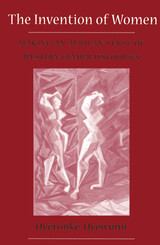


Seven Modern American Novelists was first published in 1964. Minnesota Archive Editions uses digital technology to make long-unavailable books once again accessible, and are published unaltered from the original University of Minnesota Press editions.
This volume provides critical introductions to seven of the most significant American novelists of this century, bringing together in convenient book form the material from some of the University of Minnesota Pamphlets on American Writers. The writers discussed and the contributing authors are Edith Wharton by Louis Auchincloss, Sinclair Lewis by Mark Schorer, F. Scott Fitzgerald by Charles E. Shain, William Faulkner by William Van O'Connor, Ernest Hemingway by Philip Young, Thomas Wolfe by C. Hugh Holman, and Nathanael West by Stanley Edgar Hyman.
In an introduction Mr. O'Connor, who is one of the editors of the pamphlet series, discusses some critical principles as they apply to fiction writers in general and to twentieth-century American novelists in particular. He is the author of many volumes of literary criticism as well as a collection of short stories and was a professor of English at the University of California, Davis.
Teachers, librarians, and others who use the material of the University of Minnesota Pamphlets on American Writers for frequent reference or as classroom texts will find this book particularly useful. Biographical information about the writers as well as critical evaluations of their writing is given. A bibliography for each writer lists his works and critical and biographical works about him.

The Tangled Fire of William Faulkner was first published in 1953. Minnesota Archive Editions uses digital technology to make long-unavailable books once again accessible, and are published unaltered from the original University of Minnesota Press editions.
Out of the tangled fire that is the genius of William Faulkner's fiction, this critical study draws as coherent and highly original view of the writer's achievement. By placing Faulkner in his Mississippi background and analyzing his novels and short stories in chronological sequence, O'Conner demonstrates a major thesis that sets this apart from other studies. It is his interpretation that Faulkner's fiction is not all of a piece, does not merely develop the conviction of the legend of the Old South, but is, rather, marked by diversity of theme.

Ezra Pound - American Writers 26 was first published in 1963. Minnesota Archive Editions uses digital technology to make long-unavailable books once again accessible, and are published unaltered from the original University of Minnesota Press editions.

William Faulkner - American Writers 3 was first published in 1959. Minnesota Archive Editions uses digital technology to make long-unavailable books once again accessible, and are published unaltered from the original University of Minnesota Press editions.

Confessions of an American Scholar was first published in 1970. Minnesota Archive Editions uses digital technology to make long-unavailable books once again accessible, and are published unaltered from the original University of Minnesota Press editions.
Professor O'Toole, a well-known American literary scholar (Simon O'Toole is a pseudonym), gives us a candid, amusing, and, on the whole, frightening look at what really goes on in academic life. He has taught at black and white colleges, private and public colleges, Ivy Leagues and brick colleges; and over the years he has found himself transformed from a good teacher and no scholar into a prolific scholar and a tired teacher. Along the way he fought Joe McCarthy and told his students to burn their draft cards. At the conclusion of his tale he makes some serious proposals for a solution to what he calls the mess of American education. At the core of his suggestions is the opinion that America needs less education instead of more, an idea that seems certain to evoke cries of treason from many of his academic brethren.
READERS
Browse our collection.
PUBLISHERS
See BiblioVault's publisher services.
STUDENT SERVICES
Files for college accessibility offices.
UChicago Accessibility Resources
home | accessibility | search | about | contact us
BiblioVault ® 2001 - 2024
The University of Chicago Press









